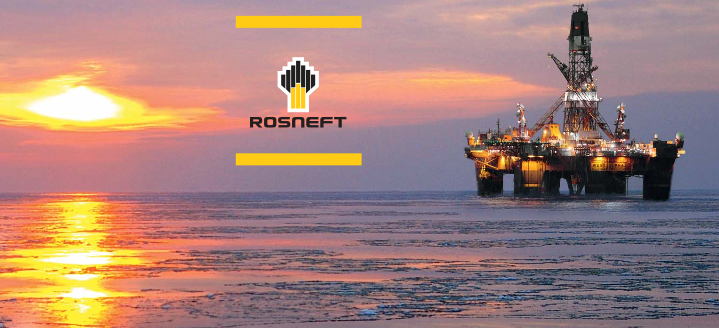The Trump administration announced significant new sanctions on Tuesday targeting Rosneft, Russia’s largest oil company, for helping Venezuelan leader Nicolas Maduro circumvent U.S. sanctions. Specifically, the sanction targets Rosneft Trading SA, a unit of Russia's state-owned oil giant Rosneft, as well as company’s executive Didier Casimiro, over the company’s actions in Venezuela, senior administration official said in call with reporters.
The US accused Rosneft of propping up Venezuela’s oil sector, the admin official said, characterizing the company as the “primary culprit” of a campaign to evade Washington’s pressure campaign on the Maduro regime.
As the US further details, the network of deception sometimes involves transferring oil to new ship before sale, typically to Asia. Occasionally, ships will also change their names, or lie about source of oil. As McClatchy details, "the administration has accused Rosneft of sending tankers to Venezuelan ports without their tracking systems on — a violation of international law and a lifeline from sanctions on Venezuela’s own state-run oil company, PDVSA, that has allowed Maduro to indirectly sell oil to China and India. Officials also said that Rosneft was orchestrating a strategy of transferring Venezuelan oil in international waters for shipment to Asia and West Africa."
US officials said that sanctions would hit Rosneft unit, as well as Casimiro’s U.S. assets but stand as worldwide prohibition, and warned that the new U.S. sanctions will affect “anyone engaging in activity” with Rosneft Trading S.A.
"This is a reaction to the growing and increasingly central role of Rosneft in the affairs of Venezuela,” one senior administration official said, “with Rosneft now trading over half of the oil now coming out of Venezuela, and actively evading sanctions — engaging in ruses, engaging in deception."
White House officials acknowledged earlier this month that sanctions on the Russian state-run firm were “on the table.” But President Donald Trump’s decision to proceed marks a significant escalation in his pressure campaign against Maduro and a rare confrontation with Russia’s president, Vladimir Putin.
“It’s essentially a secondary sanction,” said Fernando Cutz, a former Director for South America at the National Security Council during the Trump administration now at the Wilson Center. “That is a huge and consequential action — Rosneft is a huge company.”
Officials said they were confident that Tuesday’s action would not rattle oil markets, despite private concerns within the administration in recent months that such a move might destabilize prices. All of Rosneft’s assets in the United States, or those held by U.S. persons, will be blocked.
Trump is said to have cleared Tuesday’s sanctions directly. “This decision was cleared by the president himself,” a senior administration official said.
Secretary of State Mike Pompeo discussed the sanctions with Russian Foreign Minister Lavrov on Saturday, another official said, and John Sullivan, the U.S. ambassador to Russia, met with the Russian foreign minister to discuss the coming sanctions on Rosneft on Monday in Moscow.
In recent months, much of Rosneft’s cooperation with PDVSA has been an open secret: Venezuelan and Russian media reported in October that Rosneft was even in talks for a full takeover of PDVSA in exchange for debt relief.
Trump vowed to increase pressure on the Maduro regime in his State of the Union address, where he hosted Juan Guaidó, the president of Venezuela’s National Assembly who is recognized by the United States and 59 other countries as the nation’s interim president.
During that visit, a senior administration official told reporters that the White House was “concerned about the behavior of Rosneft in Venezuela.
The officials did not say whether Trump had spoken directly with Putin regarding the decision.






























